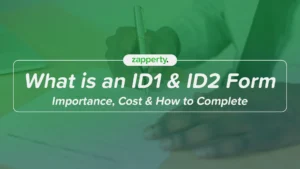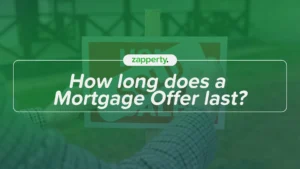Selling a house can be an exciting yet nerve-wracking experience. Whether you need to relocate for a new job, downsize, or simply want a fresh start, time is often of the essence. The big question is: how quickly can a house sale go through? Let’s break it down so you know exactly what to expect and how to speed things up.
Average Time to Sell a House
The time it takes to sell a house can vary widely depending on several factors, including market conditions, your property’s condition, and whether you’re in a property chain. On average, selling a house in the UK can take anywhere from 12 to 16 weeks, but this is just an estimate. Some sales can happen much faster, while others drag on for months.
If you’re looking for a faster sale, considering a quick-sale property company like Zapperty can significantly reduce waiting times. Instead of months, you could sell your home in as little as 7 days. Yes! You read that correctly. This is the best bet if you need to move quickly!
Of course, timing plays a key role in how fast you sell. Understanding when is the best time to sell a house can give you an advantage, as certain seasons and market conditions influence how quickly buyers make offers.
A Breakdown of the House Selling Process
Do you know that each stage of selling a house has its own timeline? Well, yes! It does. Here’s a breakdown of what to expect:
1. Finding a Buyer (4-8 weeks)
This is often the longest part of the process. If your house is priced right and located in a high-demand area, you might receive an accepted offer within days or weeks. However, if the market is slow, it could take months.
Take this insider tip: Making your home as appealing as possible, including staging it well and ensuring it’s in good condition, can help attract buyers quickly.
2. Offer Accepted to Exchange of Contracts (6-10 weeks)
Once an offer is accepted, the real work begins. This stage involves:
- Conveyancing (legal work to transfer ownership)
- Property surveys to check for structural issues
- Mortgage approval (if the buyer is using one)
- Negotiations over repairs or other details
This process can be delayed if issues arise in surveys, financing falls through, or if you’re in a property chain where multiple transactions must align.
On top of that, many sellers underestimate the costs of selling a house in the UK, which can impact their decision-making and negotiations.
3. Exchange of Contracts to Completion (1-4 weeks)
After contracts are exchanged, the sale is legally binding. The final step is completion day, when ownership officially transfers, and you receive the sale proceeds. This can happen within a week, though some prefer a longer gap to prepare for moving day.
Why Some Sales Take Longer Than Others
Not all sales follow a predictable timeline. While some properties attract buyers within days, others may linger on the market for weeks or even months. If your home isn’t selling as quickly as expected, there are several reasons why. Understanding these factors can help you take proactive steps to speed up the process.
Some of the factors that can slow things down include:
- Property Chain Issues: If your buyer is waiting to sell their home first, delays are almost inevitable.
- Leasehold Sales: Selling a leasehold property often involves additional legal formalities, which can extend timelines.
- Market Conditions: A seller’s market (high demand, low supply) speeds things up, while a buyer’s market (low demand, high supply) slows sales.
- Your Property’s Condition: If your home needs extensive repairs, this could deter buyers or lead to long negotiations after a survey.
Even with the best preparation, unexpected delays can happen. That’s why it’s important to have a clear understanding of how quickly a house sale can go through so you can anticipate potential roadblocks and find ways to overcome them.
What can go wrong in the home selling process?
If the market is slow, this can prolong the whole selling process. Cost of living pressures are impacting on the rate of exchange, while the UK budget announcement adds complexities and change significant drives like capital gains tax and stamp duty.
If you get into lengthy negotiations with the buyer this can delay the sale even more.
Undiscovered property problems such as subsidence can cause delays, especially if they require repairs or legal action. You could also get delays caused by conveyancing, planning permissions, or other legal matters.
And then there is the dreaded chain!
A property chain is a series of linked property transactions where the sale of one property is contingent upon the purchase of another, which is contingent on the sale of another, and another and so on… When it works, everything goes through smoothly, but if one transaction gets stuck, falls through or even just fizzles out, it can create a domino effect.
If your buyer is locked in a property chain, any break in the chain can bring the whole process to a halt. Not only that, but one break in the chain could lead to more breaks and the collapse of the whole thing.
Does the type of buyer make a difference?
When you come to sell your property, it’s crucial to understand the different types of buyers who may be interested in your home. Cash buyers and mortgage buyers have distinct characteristics and preferences that can impact the selling process.
Cash Buyers
Cash buyers are individuals who have the financial resources to purchase a property outright, without needing a mortgage. These buyers often have several advantages:
Cash buyers can typically close deals more quickly, as they don’t need to secure financing from a lender. Their offers are often less subject to contingencies, such as obtaining a mortgage approval.
In some cases, cash buyers may be willing to offer a higher price than mortgage buyers, as they don’t have to worry about interest rates or appraisal valuations.
If you want to sell house privately with Zapperty the process is quicker than any other house selling method. Sell your property to us in 7 days from start to finish.
Mortgage Buyers
Mortgage buyers are individuals who need to obtain a mortgage from a lender to finance their purchase. They have different considerations compared to cash buyers:
Mortgage buyers must go through a loan approval process, which can take time. These offers may be subject to contingencies, such as a successful home inspection or securing a mortgage.
Mortgage buyers may have more negotiating power, as they can use the mortgage approval process as leverage.
How to mitigate the risks of property chains
You should always maintain open and clear communication with all parties involved in the chain to address any issues promptly.
It is always best to seek professional guidance from an experienced expert.
Although having contingency plans in case of chain breaks – extending the completion date or finding alternative buyers – that may not be enough. The answer could be a cash buyer.
Do You Want to Sell Faster? Here’s What You Can Do
If time isn’t on your side, consider these strategies:
- Price It Right: Overpricing can scare off buyers, while competitive pricing attracts more interest.
- Choose the Right Buyer: A cash buyer (like Zapperty) can complete a sale much faster than someone relying on a mortgage.
- Stay Organised: Have all your documents (like Energy Performance Certificates and title deeds) ready to avoid delays.
- Work with Experts: Using an experienced conveyancer can make a huge difference in how smoothly the process goes.
Selling your home fast and stress-free is an opportunity you shouldn’t snooze on.
Why wait months when you can sell your house in as little as 7 days? At Zapperty, we make selling fast, easy, and hassle-free—no chains, no hidden fees, just a quick sale at a fair price.
Don’t let your house sale drag on. Get a free, no-obligation offer today and take control of your move! Time is precious—why waste it waiting?







